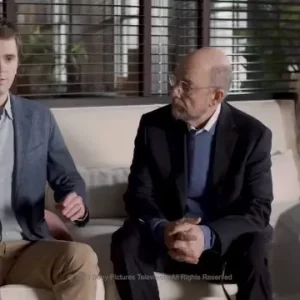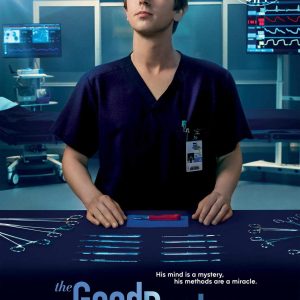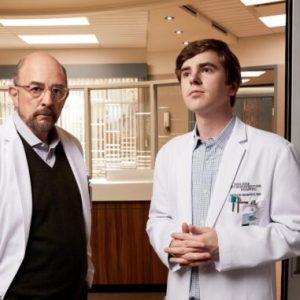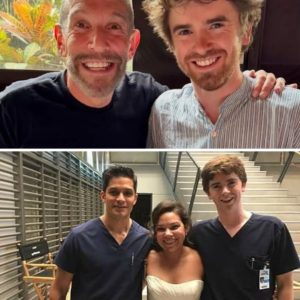Television has never been short of geniuses. We’ve seen brilliant lawyers, detectives, hackers, and doctors grace our screens—each with a particular flair for solving problems and saving the day. But few characters have felt as emotionally authentic and socially impactful as Dr. Shaun Murphy, the heart and soul of The Good Doctor. Played masterfully by Freddie Highmore, Shaun is more than just a talented surgeon with autism and savant syndrome—he is a revolutionary kind of hero, one whose story is as much about navigating emotional complexities as it is about mastering medicine.
More Than a Diagnosis
At a glance, Shaun might be labeled by others based on his condition: autistic, socially awkward, overly blunt. But the show never reduces him to a checklist of symptoms. What The Good Doctor does so well is highlight his humanity above all else. Yes, he has an exceptional memory and pattern recognition, but these gifts come alongside deep struggles with communication, sensory overload, and social cues.
Shaun is not a caricature of autism—he is a fully fleshed-out individual. He is brilliant but flawed, sensitive but direct, and intensely moral without being preachy. Through Shaun, the series forces viewers to challenge their assumptions about what ability, normalcy, and emotional intelligence really mean.
Freddie Highmore’s Career-Defining Performance
It’s impossible to talk about Shaun without praising Freddie Highmore, whose portrayal is widely regarded as one of the most nuanced performances on modern television. From awkward silences and darting eye contact to spontaneous joy and heartbreaking vulnerability, Highmore captures the full range of Shaun’s experiences with remarkable sensitivity and precision.
He doesn’t play Shaun as someone “trying to be normal.” Instead, he plays him as someone learning how to function authentically in a world not designed with him in mind. That alone is a radical concept for television. It gives voice to an entire community often misrepresented—or worse, invisible—on screen.
Highmore’s dedication to accuracy and empathy, paired with the showrunners’ consultations with autism experts, has made Shaun’s story resonate deeply with viewers worldwide, especially those who feel marginalized or misunderstood.
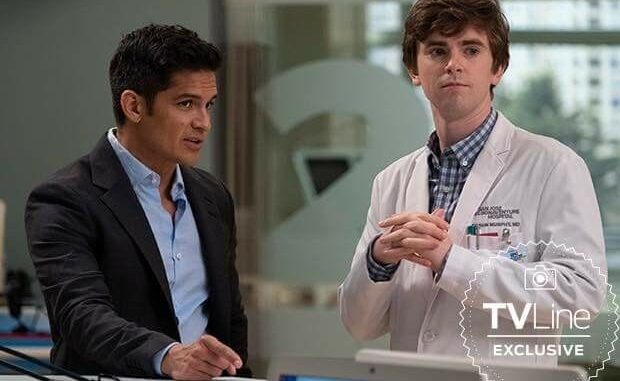
Strength in Vulnerability
Unlike many traditional TV leads, Shaun doesn’t command attention through charisma or confidence. In fact, he often recoils from the spotlight. But therein lies his quiet power. He is vulnerable without being weak—an important distinction that makes him deeply relatable.
Shaun often struggles with things that many of us take for granted: understanding sarcasm, making small talk, or expressing grief. He processes emotion differently, but that doesn’t mean he feels less. In fact, he often feels more deeply—he just expresses it in ways the people around him may not immediately recognize. That disconnect becomes the emotional core of the show.
Whether he’s experiencing heartbreak, mourning a patient, or wrestling with the idea of parenthood, Shaun’s emotional journey is raw and real. His vulnerability is his strength—and it gives the audience permission to embrace their own.
A Journey of Growth
Shaun’s evolution from a surgical resident plagued by doubt and skepticism to a respected surgeon with leadership responsibilities is a triumph of character development. But more importantly, it’s a journey many viewers relate to.
We see him learn to stand up for himself, navigate friendships, fall in love, grieve, fail, succeed, and grow—not just professionally, but personally. His relationship with Lea, in particular, showcases a deeply human portrait of intimacy, trust, and compromise. It’s messy, it’s real, and it doesn’t rely on clichés.

His bond with Dr. Glassman, too, is central to the show’s emotional foundation. A surrogate father figure, mentor, and occasional critic, Glassman sees Shaun not just for his talent, but for his heart. Their relationship—complicated and evolving—is among the most tender and authentic portrayals of mentorship on television.
The Good Doctor broke new ground by making Shaun Murphy not just a side character or a subplot—but the central figure. That in itself is groundbreaking. In a media landscape that often plays it safe, the show dared to tell a story about someone different, and it did so with care, complexity, and honesty.
Shaun isn’t portrayed as a savior, a burden, or a stereotype. He’s just Shaun—brilliant, flawed, hopeful, scared, and growing. And in showing that, the series has offered representation that matters—not just to autistic individuals, but to anyone who has ever felt like they didn’t fit in.
